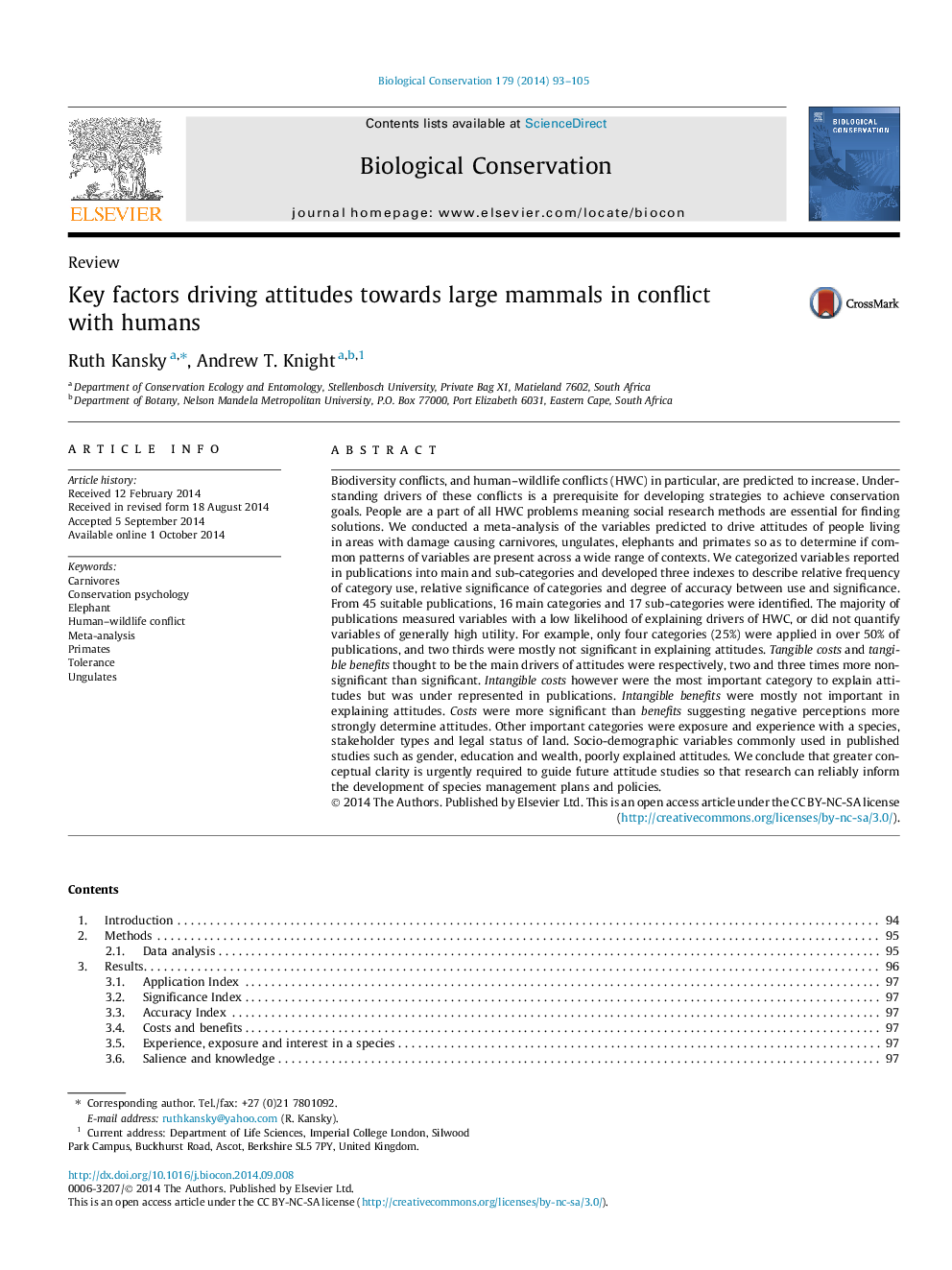| کد مقاله | کد نشریه | سال انتشار | مقاله انگلیسی | نسخه تمام متن |
|---|---|---|---|---|
| 6299934 | 1617922 | 2014 | 13 صفحه PDF | دانلود رایگان |
عنوان انگلیسی مقاله ISI
Key factors driving attitudes towards large mammals in conflict with humans
ترجمه فارسی عنوان
عوامل اصلی رانندگی نگرش نسبت به پستانداران بزرگ در جنگ با انسان
دانلود مقاله + سفارش ترجمه
دانلود مقاله ISI انگلیسی
رایگان برای ایرانیان
کلمات کلیدی
گوشت خواران، روانشناسی حفاظت، فیل، مناقشات حیات وحش متاآنالیز، نخستین تحمل، یونجه ها،
موضوعات مرتبط
علوم زیستی و بیوفناوری
علوم کشاورزی و بیولوژیک
بوم شناسی، تکامل، رفتار و سامانه شناسی
چکیده انگلیسی
Biodiversity conflicts, and human-wildlife conflicts (HWC) in particular, are predicted to increase. Understanding drivers of these conflicts is a prerequisite for developing strategies to achieve conservation goals. People are a part of all HWC problems meaning social research methods are essential for finding solutions. We conducted a meta-analysis of the variables predicted to drive attitudes of people living in areas with damage causing carnivores, ungulates, elephants and primates so as to determine if common patterns of variables are present across a wide range of contexts. We categorized variables reported in publications into main and sub-categories and developed three indexes to describe relative frequency of category use, relative significance of categories and degree of accuracy between use and significance. From 45 suitable publications, 16 main categories and 17 sub-categories were identified. The majority of publications measured variables with a low likelihood of explaining drivers of HWC, or did not quantify variables of generally high utility. For example, only four categories (25%) were applied in over 50% of publications, and two thirds were mostly not significant in explaining attitudes. Tangible costs and tangible benefits thought to be the main drivers of attitudes were respectively, two and three times more non-significant than significant. Intangible costs however were the most important category to explain attitudes but was under represented in publications. Intangible benefits were mostly not important in explaining attitudes. Costs were more significant than benefits suggesting negative perceptions more strongly determine attitudes. Other important categories were exposure and experience with a species, stakeholder types and legal status of land. Socio-demographic variables commonly used in published studies such as gender, education and wealth, poorly explained attitudes. We conclude that greater conceptual clarity is urgently required to guide future attitude studies so that research can reliably inform the development of species management plans and policies.
ناشر
Database: Elsevier - ScienceDirect (ساینس دایرکت)
Journal: Biological Conservation - Volume 179, November 2014, Pages 93-105
Journal: Biological Conservation - Volume 179, November 2014, Pages 93-105
نویسندگان
Ruth Kansky, Andrew T. Knight,
